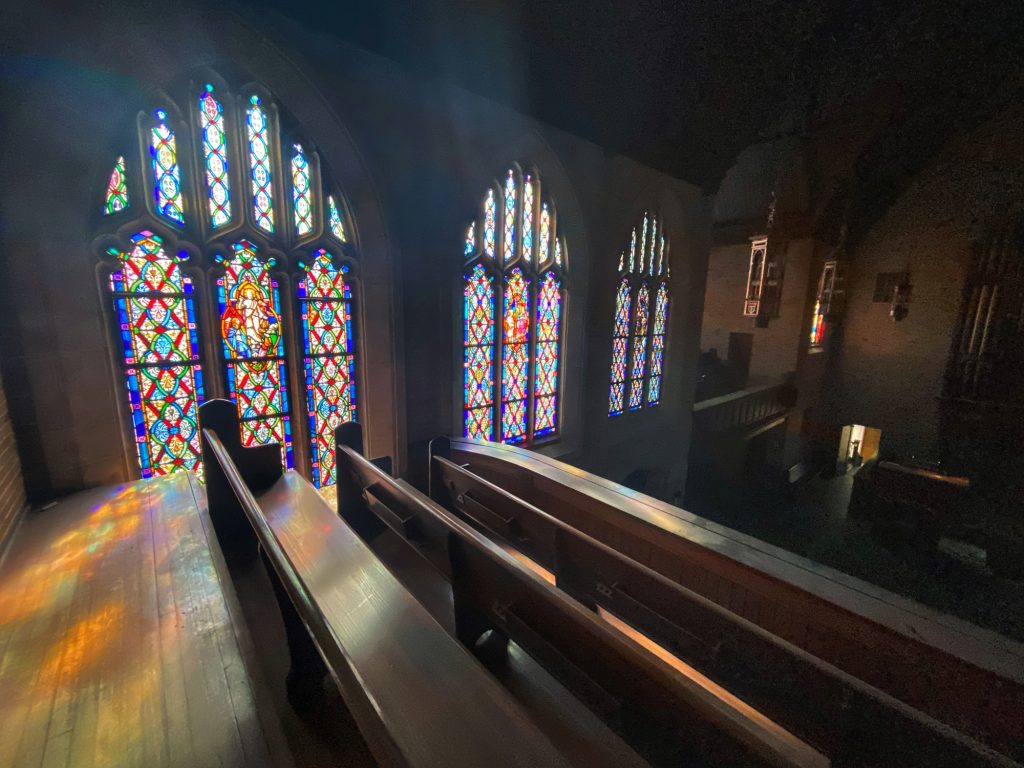By Dr. James Christie, Ambassador-at-Large, Canadian Multifaith Federation
– – –
I love titles. Take sermon titles, for example: in any tradition. A United Church of Canada colleague once publicized his proposed pulpit ponderings under the banner, Eternal Damnation: is it Long Enough? That still ranks as my favourite.
So to the title of this article, The Paschal Paradox. Reminiscent of a Robert Ludlum espionage thriller? I hope so. Romantic? Exotic? That is the intent. The thesis which I shall attempt to advance is all that and more.
I first put pen to paper to draft this article in April of this year; Good Friday, to be precise. This is one of those curious years in which the calendars of Judaism, Christianity, and Islam have intersected. What more propitious moment to reflect upon both the particular and universal aspects of my own tradition, Protestant Christianity, in the ongoing, perhaps eternal quest for religious harmony?
And now, many weeks later as I prepare this final draft, I rewrite – even as I write.

Christianity’s Central Paradox
There is a paradox at the very heart of Christianity: a Paschal Paradox, if you wish. That paradox revolves around two terms, Resurrection and the Trinity. Both terms are essential to everything Christian; both terms prove endlessly vexing for both Christian and multifaith interlocutors in a world in which interfaith dialogue is far more than an entertaining pastime for the amateur of world religious traditions.
Although the terms may seem esoteric in the 21st century, they are essential to any understanding of Christianity as a world faith. They must be continuously placed before the individual Christian. In fact, that is the primary task of the liturgical leader of every Sunday service, worldwide. For Judaism, Christianity’s parent faith, the holiest day of the sacred calendar is each Shabbat. So for Christians, the holiest day is every Sunday: the day in which the faithful recall the Resurrection of Jesus of Nazareth, and its inevitable theological consequence, the Holy Trinity.
The Resurrection
For 2000 years this has proved problematic. Unlike the Buddha; Mohammed (Peace be upon him); Lao-tzu; or Confucius, Jesus cannot be categorized primarily as a great religious teacher. Granted, Jesus was a clear, lively, and engaging master. He demonstrated in every respect Marcus Tullius Cicero’s criteria for the orator: “to teach, delight, and move.” Yet even a cursory examination of Christian Sacred texts suggests that his teaching, mostly boiler plate Jewish ethical monotheism, appears tangential to Jesus’ core mission. That mission, simply put, was to die in faith, and to await God’s pleasure. For Christians, that pleasure was revealed in the strangest of all experiences, the Resurrection.
The Christian solemnity of Good Friday is the annual memorial of Jesus of Nazareth’s death on a Roman cross. That event is integral to the Paschal mystery. But the critical element of that mystery, that divine drama, remains the Resurrection. St. Paul, the theological founder of what evolved from a Jewish sect into universalist Christianity, insisted that “if the Resurrection be not true, we are the most miserable of human beings.” I paraphrase slightly. Paul was right. Without Easter, without the Resurrection, Jesus would have been but one more rabbinical statistic of the Imperial Roman killing machine. But, to Christians and their multifaith neighbours, Christianity is the Resurrection: whatever that may mean.
Contested Meanings
As an aside, and to be clear, there is no claim in the Christian narrative that there were witnesses to the Resurrection. To the crucifixion, yes. But as one poet/theologian wrote, “no one saw the risen Christ stumble from the tomb on broken feet.” The Resurrection is best described as the experience of encountering the one who is risen.
That conviction has held true for Christians in every time and place for the past two millennia. During the 2000-year history of the Christian Church in its nearly 50,000 denominational iterations, the meaning of the Resurrection has been and remains hotly contested. It is accurate to say that the Christian Passion/Resurrection narrative is the most particularistic element of the faith. And yet, there are ways in which this same particularistic narrative might yet prove a vital factor in the development and promotion of multifaith dialogue. Yea, even so the contentious, vexing, and seeming incomprehensible Christian doctrine of the Holy Trinity.
The Trinity
If you would indulge me, gracious reader, try to set aside every preconception you may have garnered from simplistic sermons, cloying greeting cards, country gospel tunes, Bible Belt Billboards, sword and sandal Hollywood epics, and dim devotional novels. Consider, rather, that Christianity through its luminaries, sages and texts is something other and more than halos and harps, gleaming white night shirts, and cream cheese clouds.
Imagine the resurrection as a kind of time travel phenomenon. From such a perspective, the Risen Christ becomes a herald from a future, imminent or far distant, that we do not know and dare not guess. But the Christ may be interpreted as a guarantor of a barely imagined and barely comprehensible world: a world in which many faiths and spiritualities believe the Creator’s intentions will be realized.
Seen thus, the historically exclusive “heilsgeschichte” or “holy history” of the Christian Church is transformed in an inclusive moment to a vehicle of dialogue with the majority of faith and spiritual traditions, and with those of a strictly secular worldview.
Sit with this for a spell, please. And then allow your thoughts to meander towards the Trinity. The idea of the one God yet threefold is not polytheistic. Nor is it exclusive. Three decades ago, my colleague the Rev. Donald Coutts, introduced me to the notion that foundationally, most religious and spiritual traditions are trinitarian in essence. In other words, all religious expression manifests in three ways: the transcendent, the imminent, and the pneumatic, or spiritual. In classical, orthodox Christian terms, this translates as Father, Son, and Holy Spirit. More inclusive variations on this theological theme are under continuous study and development – albeit with mixed success.
At first blush, perhaps especially to Christians, this may seem counterintuitive. And yet it has become a dialogical truism that the most effective interfaith interlocutors are those most solidly grounded in their own tradition.
Your Religion’s Gift
This brief reflection is an attempt to demonstrate that Christianity has surprising resources to bring to the table of interfaith dialogue which must ultimately issue in interfaith action. But it is also intended to be an invitation to people and peoples of all faiths and not faiths to respond in kind: an ongoing dialogue, if you will.
What is there in the heart of your spiritual or religious tradition, or overarching worldview that might prove a gift to the whole human community in the struggle for mutual understanding, acceptance, respect, and peacebuilding capacity? Would you contribute an article to Viewpoints to enrich the discussion?
Two thousand years ago, Paul the Apostle of Jesus of Nazareth wrote that the Passion narrative was a “scandal to the Jews and a foolishness to the Greeks.” No doubt. That needn’t render the Christian story an obstacle to loving our neighbour, or to the pursuit of Tikkun Olam – the Mending of the World.
So, let’s just get on with it, shall we?
– – –
Dr. James Christie is the inaugural Ambassador-at-Large for the Canadian Multifaith Federation and part of the G20 Interfaith Forum Board of Directors. For 15 years, Christie served at the University of Winnipeg as Dean of Theology, Dean of the Global College, and Director of the Ridd Institute for Religion and Global Policy.


